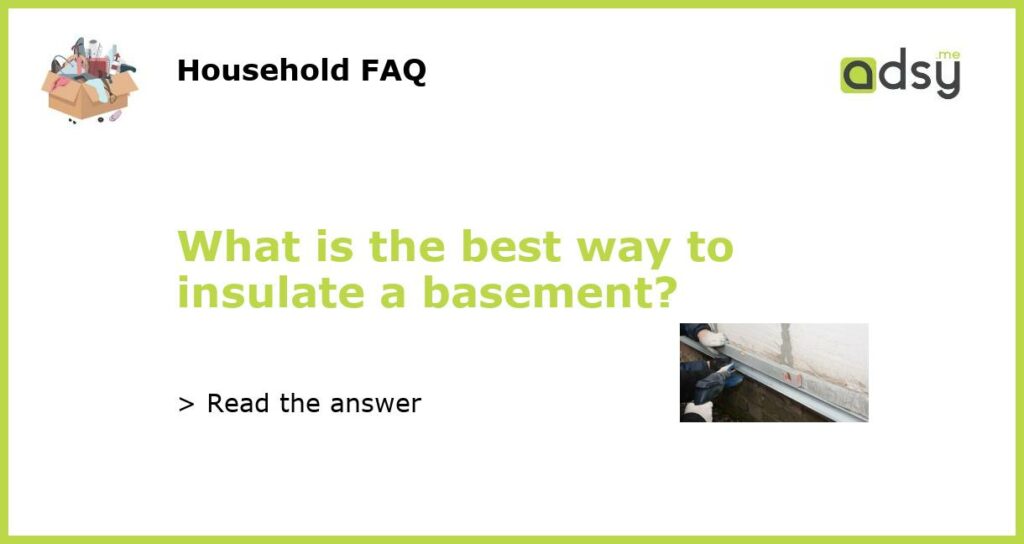The importance of basement insulation
Insulating your basement is essential for maintaining a comfortable and energy-efficient home. Without proper insulation, your basement can become a major source of heat loss or heat gain, leading to increased energy bills and reduced comfort. By insulating your basement, you can create a more comfortable living space, reduce energy consumption, and protect against moisture and mold issues.
Types of basement insulation
There are several types of insulation materials that can be used to insulate a basement. Each type has its own advantages and disadvantages, so it’s important to choose the right one for your specific needs.
Fiberglass insulation
Fiberglass insulation is one of the most commonly used types of insulation for basement walls. It is relatively inexpensive and easy to install, making it a popular choice for homeowners. Fiberglass insulation is made up of tiny fibers of glass that trap air, helping to keep your basement insulated. However, fiberglass insulation can be difficult to install in small spaces or around obstacles, and it may not provide the highest level of insulation compared to other materials.
Rigid foam insulation
Rigid foam insulation is another popular choice for basement insulation. It is made from a variety of materials, including polystyrene, polyisocyanurate, and polyurethane. Rigid foam insulation is available in different thicknesses, allowing you to achieve the desired level of insulation. It is also resistant to moisture and provides a good barrier against air infiltration. However, rigid foam insulation can be more expensive than other types of insulation, and it may require professional installation to ensure proper sealing and effectiveness.
Spray foam insulation
Spray foam insulation is a versatile and effective option for insulating basements. It is applied as a liquid and expands to fill gaps and cracks, providing an airtight seal. Spray foam insulation has a high R-value, meaning it provides excellent thermal resistance. It also helps to reduce moisture and air infiltration, preventing mold and improving indoor air quality. However, spray foam insulation is generally more expensive, and it requires professional installation as it can be difficult to apply correctly.
Insulating basement floors
In addition to insulating basement walls, it’s also important to consider insulating the basement floor. Uninsulated basement floors can result in cold, uncomfortable surfaces and energy loss. There are a few options for insulating basement floors, including rigid foam insulation, polystyrene sheets, and insulated subfloor systems. These solutions can provide a thermal break, preventing heat loss through the floor and improving overall comfort.

